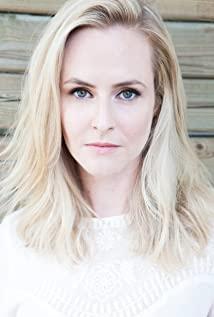Before the establishment of the country of Gilead, a free society was naturally unfettered, and women had the freedom to fall in love, marry, be single, and work. In the moment of recollection, we can see that June once took her husband and children to play in the playground, the lights alternated between bright and dark, and the laughter came one after another. They can walk, travel, and spend their lives with their loved ones.
But in all good things, a free society is not completely free. The archbishop once said to June in an old magazine: It is another kind of imprisonment. Use beautiful pictures and photos to set off your unconfidence. Women will never feel that they are not beautiful enough.
In a market economy society, people always feel that they are not rich enough.
In the infinite greed for beauty and wealth, people reap the fruits of their own.
Environmental pollution, declining birth rates, rising crime, all are heavy shackles in a seemingly free society. Although free, there is no hope. The Mexican ambassador used to follow the footsteps of children with awe when visiting Gilead, crying that no child had been born in her city for 6 years.
However, under the centralized society of Gilead, women lost their personal freedom, lost their property, and lost their name. Is it really not free?
There is more than one kind of freedom, said Aunt Lydia. Freedom to and freedom from. In the days of anarchy, it was freedom to. Now you are being given freedom from. Don't underrate it.
In the extreme unfreedom of a totalitarian society, women can finally abandon the "beautiful" shackles that society put on them in the past, and forget the provocation and insults that criminals once treated them. Handmaids who once hunted for food at the dump now have safe houses, warm clothing and plenty of food. Is this not a gain?
In a male-dominated society, are women really useless and can only be subordinate to men? In fact, it is not. Although Serena, the wife of Archbishop Fred, lost her lover who she used to love each other when she was young, she achieved the goal that she must pursue in her life. growing up. The moment she raised her glass and announced "Let's show Gilead's future", she was back to the woman who wrote the law and fought for her beliefs - beautiful, confident and proud, not dejected by her being a woman slightest.
In the finale of the first quarter, Janine's Archbishop was asked by his wife for the most severe punishment - breaking her hand - for getting her hands on the Handmaiden. Although women are incarnated as wives, handmaids, sluts and cooks in this totalitarian society, they have not been silenced because of this, but have influenced the male roles in power through their unique ways.
In a free society, the freedom women have does not allow them to obtain freedom
in the true sense; in a centralized society, women's new freedoms are not without achievements, and it does not mean that a centralized society is an ideal society.
I think that although the author describes a world that is terrifying for modern women, and also criticizes today's society's infinite greed for material and money, in the final analysis, no matter what kind of world women are in, women can always be tough. Grow, survive, be proud. In the silent and lonely little room of the maids, they discover their strength as women and their true hope in facing up to their hearts. So in the finale of the first quarter, June chose to put down the stone, not to throw the stone at his one-time sister. Then one by one, in the silent swing of the crimson skirts, they line up to the silent future, realizing their true power.
View more about The Handmaid's Tale reviews











